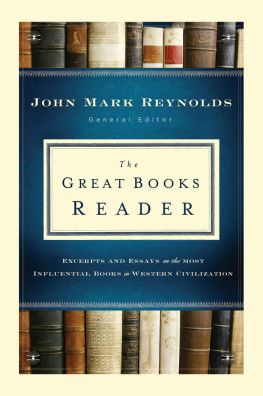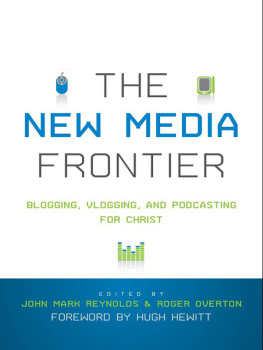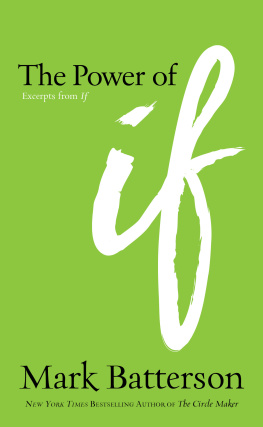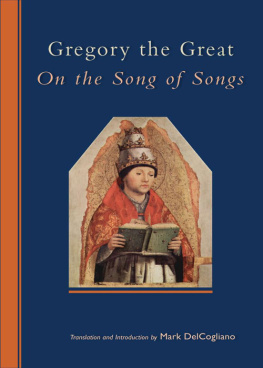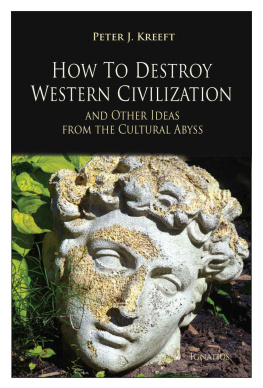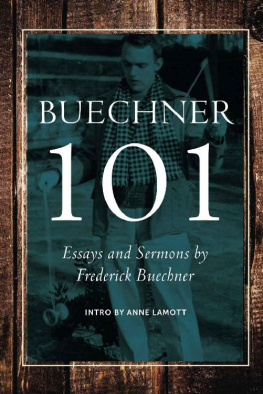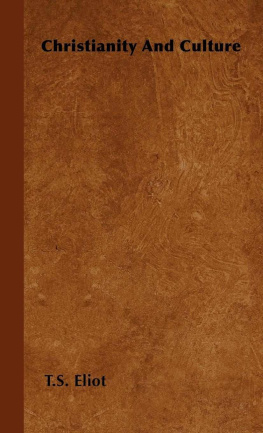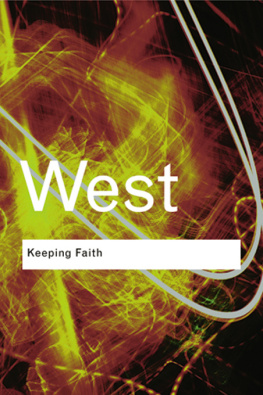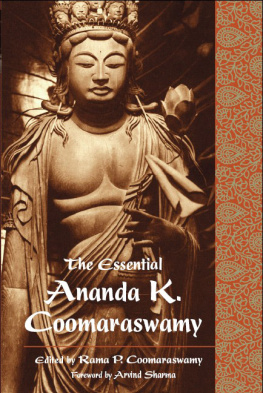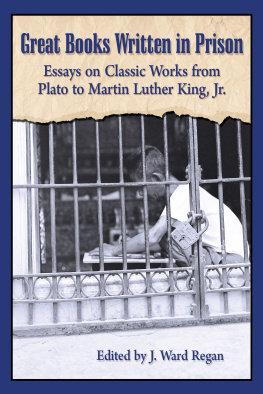All rights reserved. No part of this publication may be reproduced, stored in a retrieval system, or transmitted in any form or by any meanselectronic, mechanical, photocopying, recording, or otherwisewithout the prior written permission of the publisher. The only exception is brief quotations in printed reviews.
Library of Congress Cataloging-in-Publication Data is on file at the Library of Congress, Washington, DC.
Scripture quotations are from the King James Version of the Bible.
The Internet addresses, email addresses, and phone numbers in this book are accurate at the time of publication. They are provided as a resource. Baker Publishing Group does not endorse them or vouch for their content or permanence.
Contents
Introduction Selection from The Odyssey Essay by Al Geier
Introduction Selection from the Republic Essay by Gary Hartenburg
Introduction Selection from Nicomachean Ethics Essay by Jeff Lehman
Introduction Selection from the Aeneid Essay by Jeff Lehman
Introduction Selection from Confessions Essay by Peter Kreeft
Introduction Selection from Consolation of Philosophy Essay by Michael Fatigati
Introduction Selection from Summa Theologica Essay by Peter Kreeft
Introduction Selection from the Divine Comedy Essay by Anthony Esolen
Introduction Selection from The Canterbury Tales Essay by Diane Vincent
Introduction Selection from In Praise of Folly Essay by Greg Peters
Introduction Selection from Institutes of the Christian Religion Essay by Russell D. Moore
Introduction Selection from The Faerie Queene Essay by John Mark Reynolds
Introduction Selection from Don Quixote Essay by RT Llizo
Introduction Selection from Much Ado About Nothing Essay by Melissa Schubert
Introduction Selection from Meditations Essay by Thomas Ward
Introduction Selection from Paradise Lost Essay by Frederica Mathewes-Green
Introduction Selection from Penses Essay by Peter Kreeft
Introduction Selection (on Epistemology) from An Essay Concerning Human Understanding Essay by Janelle Klapausak
Introduction Selection (on Politics) from Two Treatises on Government: Second Treatise Essay by Jamie Campbell
Introduction Selection from Mathematical Principles of Natural Philosophy Essay by William A. Dembski
Introduction Selection from Sermons Essay by Joe Henderson
Introduction Selection from Pride and Prejudice Essay by John Mark Reynolds
Introduction Selection from Democracy in America Essay by Hugh Hewitt
Introduction Selection from the Communist Manifesto Essay by Hunter Baker
Introduction Selection from On the Origin of Species Essay by Phil Johnson
Introduction Selection from Anna Karenina Essay by Frederica Mathewes-Green Essay by Amy Obrist
Introduction Selection from The Brothers Karamazov Essay by John Granger
Introduction Selection from Genealogy of Morals Essay by Fred Sanders
Introduction Selection from Orthodoxy Essay by Dale Ahlquist
Introduction
On Reading Excerpts of Great Books
Y ou are reading a book that intends to introduce you to a better life. It does not intend to save your soul, as there is a greater collection of books in sacred Scripture to do that, but it does hope to help improve your mind. If we want to love the Lord God with our mind, its best to make that mind as sharp and attractive as possible.
Christians look forward to a better kingdom, the perfect kingdom of God, but on this side of its full manifestation, we go on living. Our goal is to become fit subjects of that civilization, and while all of us were born human, created in Gods image, this heritage only grants us the potential to become civilized. Virtuous practicesfor example, reading and following an argumenthelp us to get there.
Great Books Reader is a useful first handbook for facilitating one important virtue: being well-read. Being well-read is not sufficient, and it isnt the highest virtue to which we can strive, but it is both necessary and practical. We are, after all, people of a Great Book; no Christian leader ought to choose illiteracy or intentionally fail to develop the intellectual skills needed to read well.
Brief Defense of a (Nearly) Indefensible Project
Building a book of excerpts from great writers has risks. What if readers stop their exploration? What if instead of using their thoughts to join the discussion, to think for themselves, students simply adopt our opinions about the texts? What if this becomes the kind of volume thats purchased by home decorators to give a living room shelf a touch of class?
Reading only a bit of a great book (e.g., Platos Republic ) is like getting engaged but never marrying. The initial experience is pleasurable but can become frustrating if prolonged. Some things are only good in anticipation of a higher good thats coming. Following four consecutive lost Super Bowls, Buffalo Bills fans understand that getting to the big game is not the same as winning it. Im told that being a bridesmaid (and not a bride) loses its savor sometime around the third wedding.
Let us warn you, then, away from these misuses of this book.
Do not use this text to avoid reading the books featured here in their entirety. This would twist the intentions of the authors, because though Great Books Reader is an introduction to writers you will love, it is not a full courtship. The best writers are approachable, but really getting to know them isnt cheap or easy. Each reflects Gods grace in powerful wayseven when they have tried to reject Him. Knowing them will require a lifetime of effort; this book is a start at some literary matchmaking.
Reading an essay about a writer like Shakespeare always risks another sort of silliness. Time spent understanding a piece on Hamlet is usually better spent reading Hamlet. If the introductions here become a substitute for reading the real things, then this book will have failed. An appetizer will have become the main course!
Some time-pressed soul might question why Christians should bother reading these books at all. Why not just read the Bible? Well, there are solid reasons we should read great books. Again, we are a people of a Great Book and so should have a vested interest in literature in general.
Real love may be exclusive in its devotion, but any particular love creates the possibilities of other loves. In my experience, loving my wife better helps me love my friends better. Higher loves empower lower loves, and lower loves are practice for higher loves. If I love my neighbor as myself, then loving my country, an accumulation of neighbors, generally will follow.
Growing up loving the Bible made me apt to love other books. I dont love them in the same way I love the Bible, but a lesser love came easily. The splendor of sunlight does not take away from the glory of the stars.
Most important, any reader can fight with the lesser books, great though they may be, without risk of impiety. In contrast, sacred Scriptures are Gods Word, and an attitude of reverence is appropriate when touching them; reverence can make it hard to hone skills. Generally, a man should not learn to box with his mother.
A tough great book is a perfect proving ground to become ready and able to read the Book of Books. All good books reflect God, but not all good books are about Him any more than every good song needs to be a praise song. A good person probably cannot just read the Bible... even after he has learned to read well.

